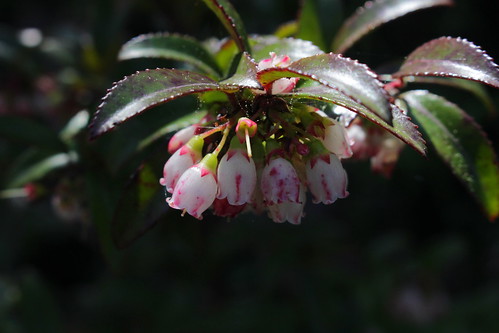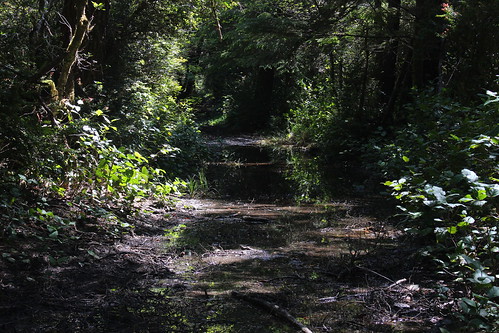Azure Farms submits a tentative weed management plan
A last-minute weed management plan filed by an organic farm may be “workable” if the farm managers follow through, a Sherman County official said.
The operators of Azure Farms, a 2,000-acre organic farm on the outskirts of Moro, filed a weed management plan 24 hours before the Sherman County Court was scheduled to discuss the issue. The county had warned it would seek a quarantine on the farm if it didn’t get a handle on what it describes as “rampant” noxious weeds.
County officials, responding to complaints from neighboring farmers who don’t want their fields infested, said they will spray the weeds with herbicide and bill the farm for the work if necessary. The farm says it will lose valuable organic certification for three years if it uses the chemical herbicides conventional farmers use.
In an email, County Commissioner Tom McCoy said he discussed Azure Farms’ plan with county weed control Supervisor Rod Asher.
“He is researching some of the measures, but believes the plan may be workable if Azure is really willing to implement it. So far, their follow through has not been good,” McCoy wrote.
The Oregon Wheat Growers League urged a “prompt and rigorous review” of Azure’s proposal.
“From our members on the ground, it’s become clear that even a casual observation of Azure’s property makes it clear that their noxious weed problem is severe and has been worsening for many years,” league CEO Blake Rowe and growers Bryan Cranston and Chris Moore said in a prepared statement.”
“Neighboring farms, including those at some distance from Azure, are being impacted by the spread of noxious weed seeds from Azure’s property. The ability of surrounding wheat farms to continue to produce certified wheat seed and the reputation of the entire area for producing high quality wheat, with virtually no weed contamination, are at risk.”
The farm proposed methods that, depending on the weed, included heavy fertilization and then deep cultivation to get at roots, spot use of Boron, citrus pulp mulch, covering weeds with landscaping fabric, salt, mowing before seeds form and spraying with calcium, manganese and boron before cultivation. “This causes the new blooms to wilt and not seed out; doesn’t kill the entire plan, though, but controls the spread,” the farm suggested.
McCoy, the commissioner, said the county court has received more than 40,000 emails about the issue, “and the number is increasing rapidly.” On social media, critics have called the county’s stance outrageous and accused the county of trying to poison the organic farm on behalf of “Big Ag” or Monsanto, which has no apparent role in the matter. McCoy said the charges against county officials are inaccurate.
In a memo prepared for the county’s May 17 meeting, weed Supervisor Asher laid out the timeline of his interactions with the farm.
March 2: Asher sent the farm’s parent company, Ecclesia of Sinai at Dufur, a weed control ordinance violation notice. The letter listed 15 company properties covering 1,922 acres in the Moro area. It gave the farm 30 days to submit a plan to control Rush skeleton, classified by the county as a Class A noxious weed, and Canada thistle, Morning Glory and White Top, all Class B noxious weeds.
March 27: Ecclesia of Sinai responded that the county didn’t have jurisdiction over it and cited biblical justification for not spraying.
April 19: The County Court discussed the issue. By then, some of the properties had been mowed, “but this was seen as a poor method of control as the weeds will grow back and root systems will flourish and continue to spread, as they have done over the many years,” Asher wrote.
Local residents attending the meeting expressed “deep concern” over weeds and were skeptical that methods other than herbicide would control them.
May 1: Asher sent a second letter to the farm, suggesting various control methods.
May 2: The county’s Weed Advisory Board agreed to defer to the county court on further action.
May 5: Asher met with Nathan Stelzer, the Azure Farm manager, who said he was unaware weeds were such a big problem. Asher felt he’d made progress in the discussion.
May 11: Asher viewed Azure’s social media campaign and said it “clearly misstated the situation.”
“My thoughts of progress and working together in the future were dashed,” Asher wrote.
The campaign, which included videos of the farm’s principals urging viewers to express their outrage at the county’s stance, resulted in an estimated 40,000 emails to county officials from around the world
May 16: Azure Farms submits a weed management plan. It lists methods the farm will use to control Rush skeleton, Canada thistle, Bindweed and White Top.
May 17: The county court meets to discuss the issue. The meeting is moved from the courthouse to the high school gym, the only space large enough for the anticipated crowd.













